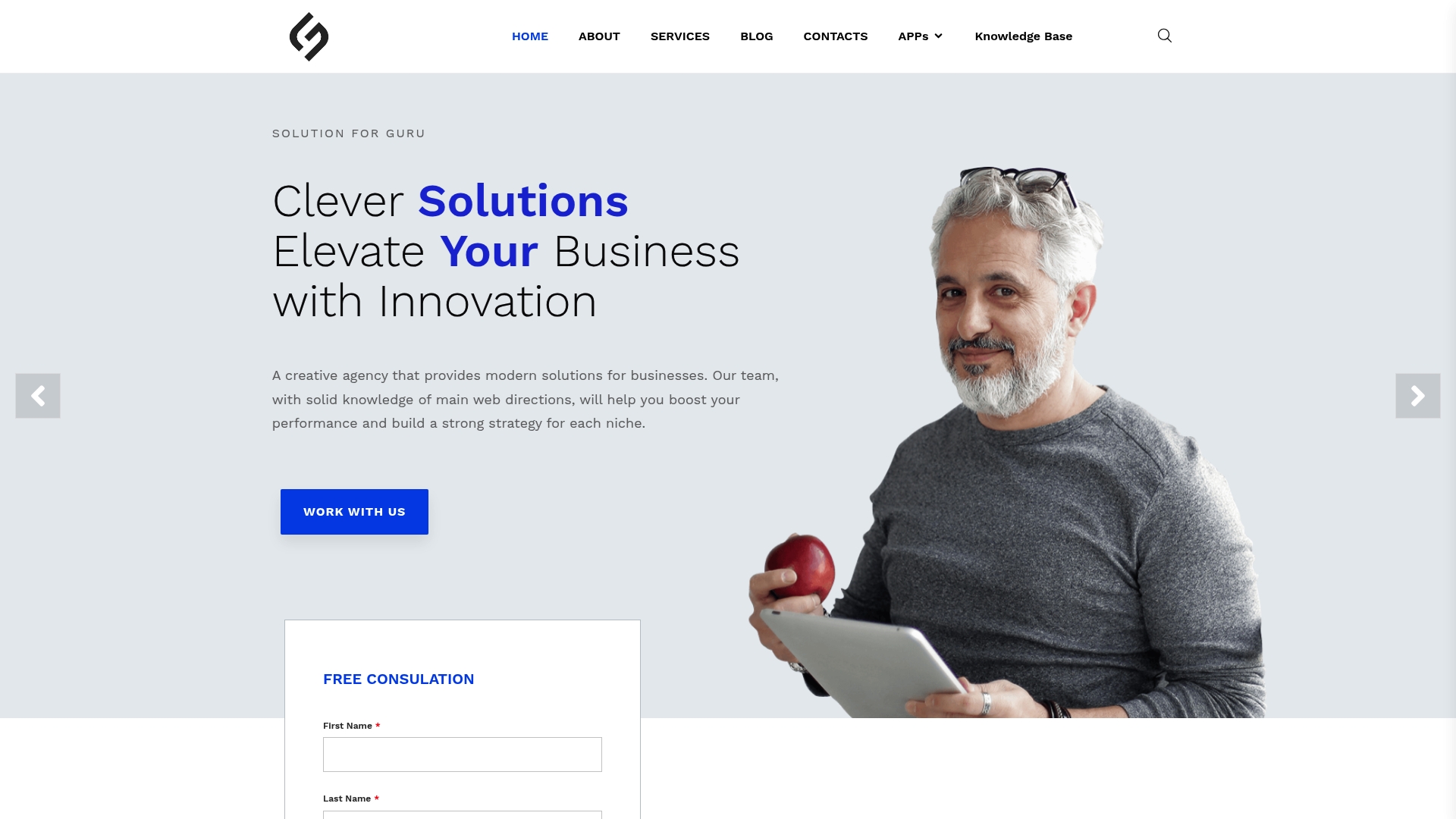Understanding SEO for Enterprises: Key Concepts Explained

Enterprise SEO is where big brands turn quiet websites into powerful digital magnets. Most people think SEO is just about keywords and ranking higher, but modern enterprises can manage optimization across dozens of websites and see up to 60 percent more cost-effective leads compared to paid ads. What catches most by surprise is that the real power of enterprise SEO is not just visibility, but its ability to drive business strategy, break down silos, and deliver measurable financial impact faster than traditional marketing could ever dream.
Table of Contents
- What Is SEO For Enterprises And Why It Matters
- How Search Engines Work And Impact Enterprises
- Key Concepts Of SEO: Keywords, Content, And Performance
- The Role Of Technical SEO In Enterprise Success
- Real-World Applications Of SEO In Large Organizations
Quick Summary
| Takeaway | Explanation |
|---|---|
| Focus on holistic SEO strategy | Successful enterprise SEO integrates technical, content, and user experience aspects to enhance overall online presence. |
| Leverage keyword research effectively | Understanding the intent behind keywords helps in creating relevant, high-quality content that satisfies user queries and search engine algorithms. |
| Prioritize technical SEO elements | A robust technical SEO foundation improves website crawlability, indexing, and user experience across devices, leading to higher search engine rankings. |
| Implement cross-departmental collaboration | Successful SEO requires breaking down silos and integrating efforts across various departments to achieve unified digital marketing objectives. |
| Use data for performance measurement | Analyzing SEO metrics provides insights into market dynamics, enabling businesses to make informed decisions to enhance growth and strategy. |
What is SEO for Enterprises and Why It Matters
SEO for enterprises represents a comprehensive digital strategy focused on enhancing online visibility, driving targeted organic traffic, and establishing authoritative digital presence for large-scale businesses. Our comprehensive guide to digital strategies reveals how modern organizations leverage search engine optimization to gain competitive advantages.
The Strategic Importance of Enterprise SEO
Enterprise SEO transcends traditional search optimization by integrating complex technical infrastructure, content strategy, and sophisticated analytical approaches. Unlike small business SEO, enterprise-level strategies require handling multiple websites, managing intricate digital ecosystems, and creating scalable optimization frameworks that align with organizational goals.
The following table summarizes the key characteristics that distinguish enterprise SEO from smaller-scale or traditional SEO initiatives.
| Characteristic | Explanation |
|---|---|
| Scale of Operations | Manages optimization across numerous digital properties and multiple websites |
| Cross-Departmental Collaboration | Requires integration and collaboration between marketing, IT, content, and analytics teams |
| Data-Driven Approach | Relies on sophisticated analytics and data to guide both content and technical strategies |
| Technical Complexity | Involves complex site architectures and advanced backend optimization |
| Content Strategy Depth | Develops scalable, high-quality, and authoritative content across large digital ecosystems |
| Measurable Financial Impact | Directly links SEO performance to key business metrics and ROI |
Key characteristics of enterprise SEO include:
- Managing optimization across numerous digital properties
- Implementing cross-departmental collaboration strategies
- Developing data-driven content and technical optimization approaches
According to Carnegie Mellon University, effective SEO involves optimizing web experiences to serve both users and search engines, aiming to achieve more organic website traffic through higher-quality web pages.
Driving Business Performance Through Strategic SEO
For enterprises, SEO is not merely about ranking higher on search results but creating a holistic digital strategy that connects technical performance, content relevance, and user experience. Successful enterprise SEO translates into measurable business outcomes such as increased brand visibility, enhanced lead generation, and improved digital marketing ROI.
Businesses implementing robust SEO strategies can expect significant benefits:
- Increased organic traffic and website engagement
- Enhanced brand credibility and market positioning
- More cost-effective digital marketing compared to paid advertising channels
By understanding and implementing sophisticated SEO techniques, enterprises can transform their digital presence from passive online representation to an active, high-performing marketing engine that consistently delivers measurable results.
How Search Engines Work and Impact Enterprises
Search engines are sophisticated digital ecosystems that function as complex information retrieval systems, transforming how enterprises interact with digital audiences. Our advanced SEO tools guide explores the intricate mechanisms behind these powerful platforms that determine online visibility and digital marketing success.
The Technical Architecture of Search Engines
Search engines operate through three fundamental processes: crawling, indexing, and ranking. Crawling involves automated programs called “spiders” or “bots” systematically browsing web pages, discovering new content and tracking changes across digital landscapes. During indexing, these systems analyze and store discovered web content in massive databases, organizing information based on complex algorithms that evaluate relevance, quality, and context.
This table provides an overview of the fundamental processes and technical components that make up the architecture of modern search engines.
| Search Engine Component | Description |
|---|---|
| Crawling | Automated bots systematically discover and scan web pages |
| Indexing | Analysis and storage of web content in large search engine databases |
| Ranking | Evaluation and ordering of web pages based on relevance, authority, and algorithms |
| Web Crawlers | Specialized programs that continuously explore and inventory online content |
| Indexing Algorithms | Complex systems that categorize and assess content quality and context |
| Ranking Mechanisms | Algorithms that determine visibility and positioning in search results |
Key components of search engine infrastructure include:
- Web crawlers that continuously explore digital content
- Sophisticated indexing algorithms
- Complex ranking mechanisms evaluating website authority
According to Carnegie Mellon University, effective search optimization requires understanding how these systems process and evaluate web content to enhance visibility.
Enterprise Impact and Strategic Implications
For enterprises, understanding search engine mechanics translates into strategic digital performance. Modern search algorithms prioritize user experience, content quality, and technical website performance. This means businesses must develop holistic digital strategies that simultaneously address technical infrastructure, content relevance, and user engagement.
Enterprise search engine strategies yield critical advantages:
- Precise audience targeting through algorithmic understanding
- Enhanced brand discoverability in competitive digital markets
- Data-driven insights into consumer search behaviors
By comprehending and adapting to search engine dynamics, enterprises can transform their digital presence from passive web representation to active, intelligence-driven marketing platforms that consistently capture targeted audience attention.
Key Concepts of SEO: Keywords, Content, and Performance
SEO for enterprises hinges on understanding three fundamental pillars: keywords, content strategy, and performance metrics. Explore our comprehensive digital marketing strategies to unlock the full potential of these critical SEO components.
Strategic Keyword Research and Implementation
Keywords serve as the foundational bridge connecting user search intent with enterprise digital content. Enterprise-level keyword strategies go beyond simple word matching, requiring sophisticated approaches that analyze search volume, competition, user intent, and contextual relevance. Modern keyword research involves deep linguistic and behavioral analysis, identifying not just individual terms but entire semantic clusters that represent potential customer interactions.
Key elements of advanced keyword strategy include:
- Comprehensive long-tail keyword identification
- Semantic search understanding
- Competitive keyword landscape analysis
According to Carnegie Mellon University, effective keyword optimization involves creating content that genuinely serves user needs while aligning with search engine algorithmic preferences.
Content Quality and Technical Performance
Enterprise SEO transcends traditional content creation by integrating technical performance with high-quality, strategically crafted content. Successful strategies require a holistic approach that balances engaging, authoritative content with robust technical infrastructure. This means developing content that not only answers user queries but also meets complex search engine requirements for speed, mobile responsiveness, and structured data.
Critical performance considerations include:
- Page load speed and technical optimization
- Mobile user experience
- Comprehensive content depth and relevance
By synthesizing technical excellence with strategic content development, enterprises can create digital experiences that simultaneously satisfy user needs and search engine algorithms, driving sustainable organic growth and digital visibility.

The Role of Technical SEO in Enterprise Success
Technical SEO represents the foundational infrastructure that enables enterprises to maximize their digital visibility and search engine performance. Learn more about web development essentials to understand how technical optimization drives digital success.
Infrastructure and Search Engine Compatibility
Technical SEO goes beyond content creation, focusing on the intricate backend mechanisms that determine a website’s searchability and accessibility. Enterprise technical optimization involves comprehensive strategies that ensure websites are structured in ways search engines can efficiently crawl, index, and understand. This includes creating clear site architectures, implementing proper metadata, managing crawl budgets, and establishing robust linking structures that signal content relevance and authority.
Critical technical SEO infrastructure components include:
- Website architecture and navigation design
- Metadata optimization and schema markup
- Server response time and performance metrics
According to SCORE’s digital strategy research, technical SEO is vital for capturing broader audiences by making websites more discoverable and user-friendly.
Performance Optimization and User Experience
Enterprise technical SEO directly impacts user experience and search engine rankings through multiple performance dimensions. Modern search algorithms prioritize websites that deliver fast, secure, and responsive digital experiences across various devices. This means enterprises must develop sophisticated technical strategies that simultaneously address speed, mobile compatibility, security protocols, and cross-platform accessibility.
Key performance optimization strategies encompass:
- Mobile responsiveness and adaptive design
- Page loading speed enhancement
- Cross-browser and cross-device compatibility
By implementing rigorous technical SEO practices, enterprises transform their digital platforms from static websites into dynamic, intelligent systems that continuously adapt to evolving search engine requirements and user expectations.

Real-World Applications of SEO in Large Organizations
SEO strategies have evolved from simple keyword optimization to complex, integrated digital marketing approaches that drive substantial business outcomes for large organizations. Explore our comprehensive digital marketing strategies to understand how enterprises leverage SEO for transformative results.
Strategic Organizational SEO Implementation
Large organizations deploy SEO as a multidimensional strategy that spans multiple departments and digital touchpoints. Enterprise-level SEO goes beyond traditional marketing approaches, integrating technical infrastructure, content development, data analytics, and cross-functional collaboration. Successful implementation requires breaking down organizational silos and creating unified digital strategies that align with overall business objectives.
Key organizational SEO integration strategies include:
- Establishing cross-departmental SEO governance
- Creating centralized content and optimization frameworks
- Developing comprehensive digital performance metrics
According to UK Research and Innovation guidelines, effective SEO requires designing high-quality content with clear, descriptive page titles and consistently updated information.
Measuring and Driving Business Performance
Enterprise SEO transforms from a tactical marketing function to a strategic business intelligence tool. Modern organizations use SEO insights to understand market dynamics, customer behavior, and competitive landscapes. By analyzing search data, performance metrics, and user interactions, businesses can make informed decisions about product development, customer experience, and strategic positioning.
Critical SEO performance measurement dimensions include:
- Organic traffic and conversion rate analysis
- Customer acquisition cost optimization
- Competitive market positioning insights
By implementing sophisticated SEO strategies, large organizations can create adaptive digital ecosystems that continuously learn, optimize, and drive sustainable business growth through data-driven insights and strategic digital presence management.
Ready to Turn Enterprise SEO Challenges Into Growth?
Many large businesses struggle with scaling search strategies across complex websites, ensuring technical SEO health, and coordinating multiple teams. Our article highlighted how these demands can slow growth, limit visibility, and create roadblocks in digital transformation. Understanding technical optimization, content relevance, and performance metrics is essential—but putting it all into action often requires expert guidance. For ongoing knowledge and business-focused resources, explore the General Info Archives.

Imagine your enterprise supported by tailored SEO solutions that address every detail, from infrastructure to analytics. Take your next step with real partners who understand digital transformation for large organizations. Visit Solution4Guru.com for a free consultation and see how our strategies can drive measurable performance changes in your business.
Frequently Asked Questions
What is enterprise SEO?
Enterprise SEO refers to a comprehensive digital strategy focused on enhancing online visibility and driving targeted organic traffic for large-scale businesses by managing multiple websites and creating scalable optimization frameworks.
Why is SEO important for large organizations?
SEO is crucial for large organizations as it helps improve brand visibility, drive organic traffic, enhance lead generation, and deliver higher ROI compared to paid advertising.
How does technical SEO impact the performance of enterprise websites?
Technical SEO affects the performance of enterprise websites by ensuring efficient crawling, indexing, and user experience, including aspects like site architecture, mobile responsiveness, and page load speed.
What are the key elements of a successful enterprise SEO strategy?
A successful enterprise SEO strategy includes advanced keyword research, high-quality content creation, and rigorous technical optimization to align with user intent and search engine requirements.



